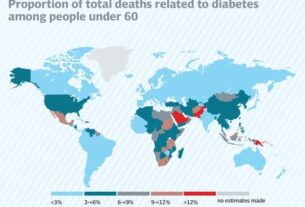Southern California is renowned for its beautiful weather and sunny skies, but the region is currently experiencing an intense heatwave that has set records and posed serious risks to residents. With temperatures soaring to unprecedented levels, it’s crucial for residents and visitors alike to understand the dangers of extreme heat and how to protect themselves. This guide provides comprehensive advice on staying safe during these sweltering conditions.
Understanding the Heatwave
The Current Situation
Southern California is facing an extreme heatwave, with temperatures reaching record highs across the region. According to meteorologists, this heatwave is the result of a combination of factors, including a high-pressure system that is trapping warm air over the area. The effects are being felt across various cities, including Los Angeles, San Diego, and Riverside, where temperatures are consistently climbing well above 100°F (38°C).
Why Extreme Heat is Dangerous
Extreme heat can have severe health impacts, particularly on vulnerable populations such as the elderly, children, and individuals with preexisting health conditions. Prolonged exposure to high temperatures can lead to heat exhaustion, heatstroke, and dehydration. Additionally, extreme heat can exacerbate existing health issues, such as cardiovascular and respiratory conditions.
Essential Tips for Staying Safe
1. Stay Hydrated
Hydration is Key: The most important step in combating heat is to stay well-hydrated. Drink plenty of water throughout the day, even if you don’t feel thirsty. Avoid beverages that can dehydrate you, such as alcohol and caffeine.
Hydration Tips:
- Aim to drink at least 8-10 glasses of water per day.
- Carry a reusable water bottle with you at all times.
- If you’re engaging in outdoor activities, drink water before, during, and after exercise.
2. Avoid the Heat
Limit Outdoor Activities: During the peak heat of the day, usually between 10 a.m. and 4 p.m., try to stay indoors or seek shade if you need to be outside. If you have to go out, take frequent breaks in cool or air-conditioned areas.
Protective Measures:
- Wear lightweight, loose-fitting clothing to help keep your body cool.
- Use hats and sunglasses to shield yourself from the sun.
- Apply sunscreen with high SPF to protect your skin from sunburn.
3. Cool Your Environment
Air Conditioning: If possible, stay in air-conditioned buildings. Air conditioning is one of the most effective ways to reduce heat-related health risks. If you don’t have air conditioning at home, consider visiting public spaces like shopping malls or libraries.
Cooling Tips:
- Use fans to help circulate air in your home.
- Close blinds or curtains during the hottest part of the day to keep indoor spaces cooler.
- Take cool showers or baths to lower your body temperature.
4. Recognize Heat-Related Illnesses
Heat Exhaustion: Symptoms include heavy sweating, weakness, dizziness, nausea, and headache. If you or someone else is experiencing these symptoms, move to a cooler place, drink water, and rest.
Heatstroke: This is a more severe condition characterized by a high body temperature (above 103°F or 39°C), confusion, loss of consciousness, and rapid heartbeat. Heatstroke is a medical emergency and requires immediate attention. Call 911 and try to cool the person down with water or ice packs while waiting for help.
5. Care for Others
Check on Neighbors: During extreme heat, it’s essential to look out for neighbors, especially those who may be more vulnerable, such as the elderly or individuals with health conditions.
Supportive Actions:
- Offer to bring water or check on their well-being.
- Share information about local cooling centers or resources available for those without air conditioning.
6. Maintain Your Vehicle
Vehicle Safety: If you must travel, ensure that your vehicle’s air conditioning is working properly. Never leave children or pets in a parked car, as temperatures inside a vehicle can rise rapidly and become dangerously hot.
Vehicle Tips:
- Check your car’s coolant levels and air conditioning system before hitting the road.
- Carry extra water in your car in case of emergencies.
Special Considerations
For Pets
Protect Your Pets: Pets are also at risk during extreme heat. Ensure they have access to plenty of fresh water and a cool, shaded area to rest. Avoid walking dogs during the hottest part of the day and be mindful of hot pavement, which can burn their paws.
For Children
Child Safety: Ensure children are well-hydrated and take frequent breaks in the shade or air-conditioned areas. Avoid strenuous outdoor activities and make sure they wear sun protection.
For the Elderly
Elderly Care: Older adults are more susceptible to heat-related illnesses. Check in regularly on elderly family members or neighbors, and ensure they are staying hydrated and cool.
What to Do if You Suspect a Heat-Related Illness
If you or someone else shows signs of heat exhaustion or heatstroke, it’s crucial to act quickly. Move to a cooler environment, drink water, and seek medical assistance if necessary. Always be proactive in recognizing symptoms and taking preventative measures to avoid severe health issues.
Additional Resources
Local Cooling Centers
Many communities have established cooling centers to provide relief during heatwaves. Check local government websites or community centers for information on locations and operating hours.
Emergency Services
In case of a heat-related emergency, don’t hesitate to call 911 or visit the nearest emergency room. Prompt medical attention can be crucial in preventing severe health consequences.
Staying Prepared for Future Heatwaves
Plan Ahead: As extreme heat events become more common, it’s essential to be prepared. Keep emergency supplies on hand, including water, medications, and first aid supplies. Stay informed about weather forecasts and heat advisories to make necessary adjustments to your plans.
Community Efforts: Advocate for community measures to address heat-related risks, such as improved access to cooling centers and support for vulnerable populations. Collaboration and preparedness can make a significant difference in mitigating the effects of extreme heat.
Final Thoughts
As Southern California endures this intense heatwave, staying informed and prepared is essential for ensuring your safety and well-being. By following these guidelines and taking proactive measures, you can reduce the risks associated with extreme heat and protect yourself and your loved ones. Stay cool, stay hydrated, and prioritize your health during these challenging conditions.





